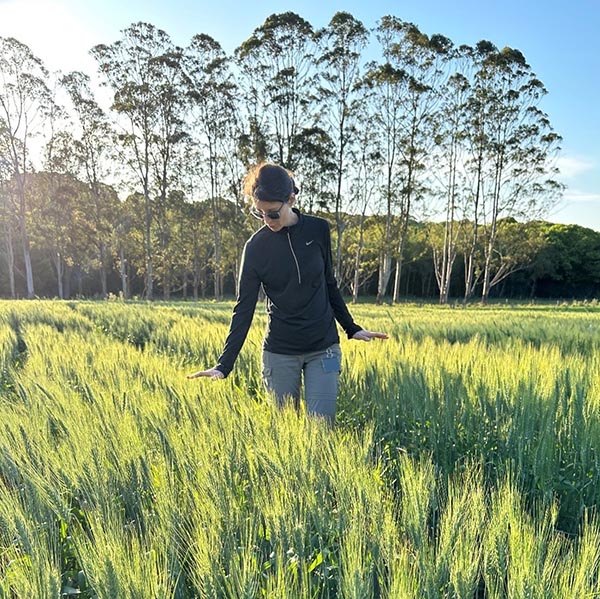PhD Student Profile

Maryam Barati
Southern Cross University
My study will investigate if organic phosphorus sources can deliver superior use efficiency when compared to ‘traditional’ inorganic phosphorous sources. This will require the quantification of grain crop response to organic (e.g. manure) and inorganic sources (e.g. monoammonium phosphate) of phosphorous to determine the actual value (response slope) of each phosphorous source measured as grain yield or dry matter. It will examine the underlying mechanisms contributing to differences in use efficiency between these phosphorous sources, including the role and response of soil microorganisms.
If successful, these studies will identify a lower phosphorous input requirement from organic phosphorous sources, which can meet crop demand for production of 90 and 95% of maximum grain yield and dry matter.
PhD Title
“Improving phosphorus acquisition in grain crops with organic amendments.”
PhD Start Date
June 2021
Supervisors
Professor Terry Rose, Southern Cross University, Dr Chelsea Janke, University of Queensland.
What interested you about this research?
The proposed research may help grain growers by bridging critical knowledge gaps regarding soil regulation of phosphorous bioavailability. Using recycled materials, the broader aim is to identify a lower cost phosphorous fertiliser source that has a lower environmental impact.
What do you love about soil?
Soils anchor plants and supply their nutritional requirements. Therefore, soils make it possible for plants to feed the world and purify the atmosphere of CO2.
What do you love about your PhD?
My research aims to further highlight the potential benefits of using organic manures as a phosphorous substitute or co-contributor to crop phosphorous requirements. This will help improve recycling in intensive livestock industries.
How will your PhD help to make a difference for farmers?
Based on current prices, this study’s immediate impact will be to reduce input costs for grain growers so greater profit margins can be achieved. This will be accomplished by; (i) raising awareness of manures as a nutrient source, (ii) determining the true value of animal manures relative to inorganic fertiliser on a crop response basis, and (iii) identifying any additional value provided to grain crop production when manures and inorganic fertiliser are combined. The pathway to market is partly in place, with some grain growers already switching to organic manures as a lower-cost supply of phosphorous.
What do you want to do when you finish your PhD?
I completed my honours studies on nitrogen use efficiency, and my PhD studies focus on phosphorus use efficiency. I would like to continue research in soil and crop nutrition and continue learning from other scientists working in this field.
More information
Read Maryam’s profile piece: Understanding the value of manure as a phosphorous source (December 2024)
